Premium Only Content
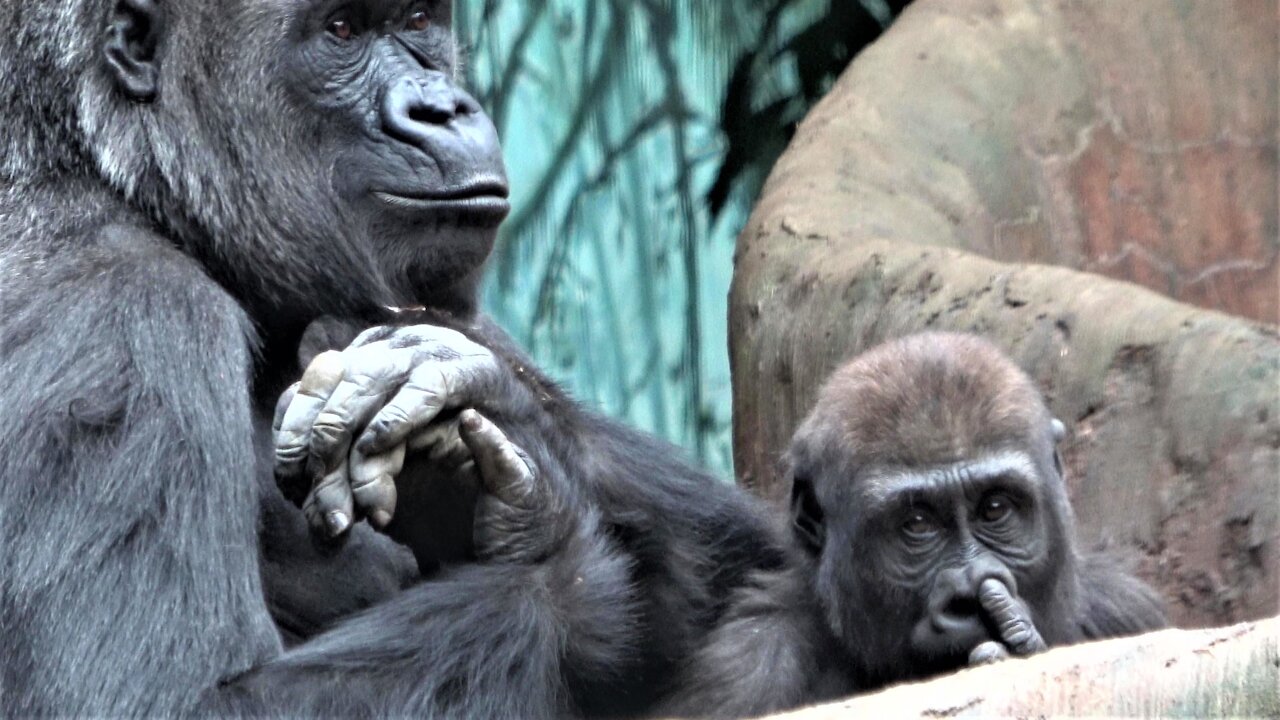
Baby gorilla engages in surprisingly human-like nose picking behavior
Gorillas capture our fascination and our hearts as we watch them and we are reminded in many ways of ourselves. Capable of very human behaviours and even similar facial expressions, it is not difficult to believe that we are so closely related.
This gorilla baby is enjoying some affectionate time with his mother, having just had his morning milk. But what he does after he is finished is a behaviour that we have all seen young human children do very frequently. He sticks a finger up his nose, looks at what he has pulled out and promptly pops his finger into his mouth. He repeats this several times in a way that looks as if he has been exposed to human children and he has learned this from them.
The truth is that this baby has almost definitely not see this action performed by people and that he has simply learned it on his own for whatever reason. This might suggest that some of the same instinctive behaviour is influencing the gorillas and ourselves in a similar way.
These are western lowland gorillas, the smaller of the subspecies, yet the males can reach a weight of 270kg (600lbs). They have incredible strength and are reported to be 7-8 times as powerful as an Olympic weightlifter, although this is not easily verified. standing erect, can reach a height of almost 2m (6ft). They possess formidable teeth and jaw strength, capable of a biting force that is greater than a large dog.
Despite such immense power, gorillas are generally calm and non-aggressive unless disturbed or threatened. Even the adult males, known as silverbacks, are not likely to attack humans unless provoked.
The western lowland gorilla is a critically endangered species. These gorillas live at the Toronto Zoo, one of the world's highest rated zoos, and recipient of numerous top awards related to conditions and health programs for the animals. They are world leaders in conservation efforts and education. When considering which facilities to support or avoid, a little research goes a long way. Supporting the organizations that are active in animal welfare around the world is crucial if we want to see animals like these survive.
-
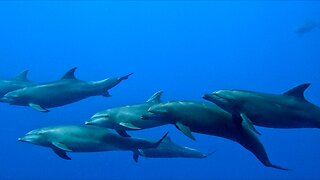 1:55
1:55
WildCreatures
14 days ago $0.93 earnedDolphins and Whale Shark at the same Time Make an Unforgettable Scuba Encounter
3.02K1 -
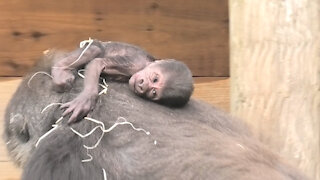 1:42
1:42
SloggerVloggerGorillas
4 years agoGorilla mom preciously rocks her newborn baby
215K7 -
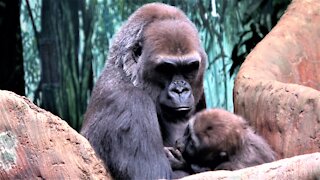 0:59
0:59
WildCreatures
4 years ago $14.44 earnedGorilla baby and mother share tender moments together
9.14K9 -
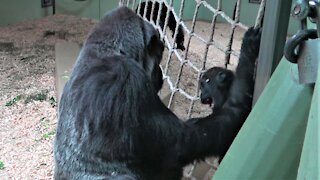 1:43
1:43
WildCreatures
4 years ago $1.84 earnedGorilla baby and father have an adorable tickle fest during playtime
29.4K6 -
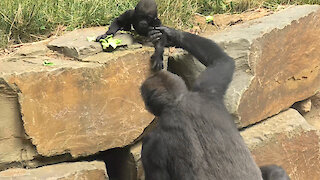 1:32
1:32
SloggerVloggerGorillas
4 years agoGorilla mom loves slinging baby on her back
14.8K2 -
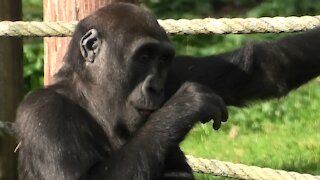 1:30
1:30
SloggerVloggerGorillas
4 years agoGorilla youngster chases rabbit around his enclosure
12.4K4 -
 1:00
1:00
Milo the Indian Ringneck Parrot
4 years ago $35.62 earnedTalking parrot engages in casual evening conversation with owner
18.8K31 -
 0:51
0:51
SloggerVloggerGorillas
4 years agoGorilla youngster shows off his new favorite "toy"
6.54K1 -
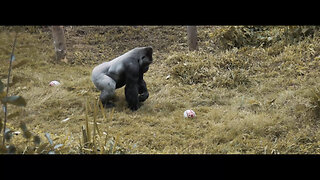 0:53
0:53
CoverVideo
5 years ago $0.03 earnedGorilla spotted playing rugby
443 -
 0:42
0:42
Animalz
4 years ago $12.19 earnedGorilla youngsters engage in hilariously epic wrestling match
4.86K3